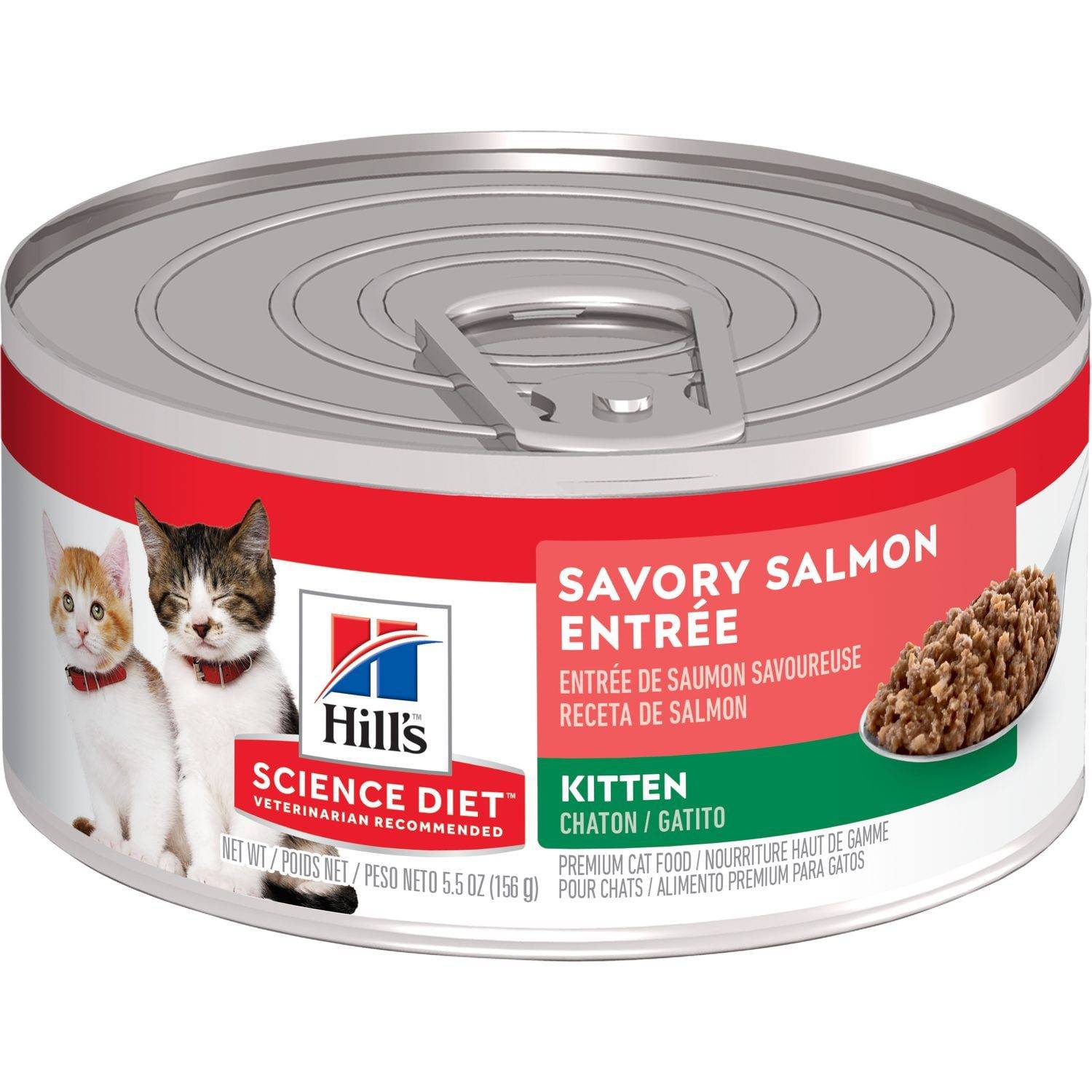Following a soft food diet is recommended for individuals with tmj to relieve pain and promote healing. This diet consists of easily chewable foods that require minimal jaw movement.
Tmj, or temporomandibular joint disorder, causes pain and discomfort in the jaw joint and muscles. It can make it difficult to chew and eat certain foods. To alleviate these symptoms, healthcare professionals often recommend following a soft food diet. This diet consists of foods that are easy to chew and require minimal jaw movement.
By opting for softer options, individuals with tmj can reduce strain on their jaw joint and muscles, allowing them to heal and recover. We will explore what a soft food diet for tmj entails and provide suitable food options to consider.

Credit: www.newsmile4u.com
Soft Food Diet For Tmj: An Overview
Soft food diet for tmj is an effective approach to alleviate discomfort and promote healing. It involves consuming easily chewable foods that reduce strain on the jaw joint, helping to manage tmj symptoms and improve overall oral health.
Tmj, or temporomandibular joint disorder, can be a painful condition that affects the jaw joints and muscles. One way to alleviate the discomfort and promote healing is through a soft food diet for tmj. By following this specialized diet, you can give your jaw a much-needed break while still maintaining adequate nutrition.
In this section, we will discuss the significance of a soft food diet for tmj and explore the impact of tmj on diet and eating habits.
Significance Of A Soft Food Diet For Tmj
A soft food diet for tmj is crucial in managing the symptoms associated with this condition. By opting for softer food options, you can reduce the strain on your jaw joints and muscles, allowing them to heal and recover. Here are some key points to understand about the significance of a soft food diet for tmj:
- Reduces jaw stress: Chewing hard or tough foods can put excessive strain on the jaw joints, aggravating the symptoms of tmj. By choosing soft foods, you can minimize the stress on your jaw and promote healing.
- Provides adequate nutrition: While it may be tempting to rely solely on liquid or pureed foods, it is essential to ensure that you still receive sufficient nutrients. A soft food diet allows you to maintain a balanced intake of proteins, vitamins, and minerals, ensuring your body’s nutritional needs are met.
- Facilitates jaw rest: Consuming softer foods gives your jaw joints and muscles a chance to rest. By avoiding hard or crunchy textures, you can prevent the unnecessary movement and pressure that may worsen your tmj symptoms.
- Supports pain management: Many individuals with tmj experience jaw pain and discomfort. Opting for a soft food diet can help alleviate pain by reducing the strain on the jaw joints and providing relief from chewing-related discomfort.
Impact Of Tmj On Diet And Eating Habits
Tmj can significantly impact your diet and eating habits. The symptoms associated with this condition may make it difficult to consume certain foods, leading to changes in your everyday eating routine. Here are some ways in which tmj can affect your diet and eating habits:
- Limited food choices: The pain and discomfort associated with tmj may make it challenging to consume hard, chewy, or crunchy foods. As a result, you may need to modify your diet to incorporate softer alternatives.
- Difficulty chewing: Tmj can affect your ability to chew food properly, making it necessary to choose softer textures that require less effort and strain. This may lead to a reduced variety in your meals and a need for alternative cooking methods.
- Longer meal times: Pain and stiffness in the jaw can slow down the eating process, resulting in longer meal times. This can be frustrating and may require adjustments in your daily routine to accommodate the increased duration of meals.
- Nutritional concerns: A limited diet due to tmj symptoms could potentially lead to nutritional deficiencies if proper care is not taken. It is crucial to focus on choosing soft foods that still provide essential nutrients to maintain overall health.
- Emotional impact: The frustration and limitations imposed by tmj on your diet and eating habits can also have emotional implications. It is essential to address any emotional concerns that may arise and seek support from healthcare professionals or support groups if needed.
By understanding the significance of a soft food diet for tmj and recognizing the impact of tmj on diet and eating habits, you can make informed choices to alleviate symptoms and promote healing. Remember to consult with a healthcare professional or a registered dietitian to ensure that your soft food diet meets your specific nutritional needs.
Understanding Tmj Disorders
Tmj disorders can be managed with a soft food diet that helps alleviate jaw pain and discomfort. By opting for easily chewable foods, you can reduce stress on your jaw joints and muscles, promoting healing and relief from tmj symptoms.
Tmj disorders can cause a lot of discomfort and can significantly impact daily activities such as eating. If you’re experiencing tmj-related eating difficulties, a soft food diet might help alleviate some of the discomfort. In this blog post, we will dive deeper into understanding tmj disorders, their causes and symptoms, as well as how they can affect your ability to eat comfortably.
What Is Tmj Disorder?
- The temporomandibular joint (tmj) is a hinge-like joint that connects your jawbone to your skull and allows for various movements such as chewing and talking.
- Tmj disorder refers to any condition that affects the proper functioning of this joint, leading to pain, discomfort, and limited jaw movement.
- It is estimated that around 10 million people in the united states alone suffer from tmj disorders.
Causes And Symptoms Of Tmj Disorders:
- Tmj disorders can have various causes, including:
- Injury or trauma to the jaw joint or muscles surrounding it
- Arthritis affecting the tmj
- Jaw misalignment or bite problems
- Teeth grinding or clenching (bruxism)
- Stress, which can cause muscle tension in the jaw
- Common symptoms of tmj disorders include:
- Jaw pain or tenderness
- Clicking, popping, or grating sounds when opening or closing the mouth
- Headaches or migraines
- Facial pain or discomfort
- Limited range of motion or lockjaw
- Ear pain, ringing in the ears, or dizziness
Tmj And Eating Difficulties:
- Tmj disorders can make eating a challenging task due to the pain and limited jaw movement. This can significantly affect your diet and overall nutrition.
- Some common eating difficulties associated with tmj disorders include:
- Pain while chewing or biting down
- Difficulty opening the mouth wide enough to eat certain foods
- Inability to comfortably chew hard, tough, or crunchy foods
- Discomfort when swallowing
- Increased jaw fatigue during and after meals
- Adopting a soft food diet can help alleviate some of these eating difficulties by providing relief to the jaw joint and muscles.
- Soft foods are easier to chew, require less jaw movement, and put minimal stress on the tmj. Here are some examples of soft foods that you can include in your diet:
- Cooked vegetables such as mashed potatoes, steamed carrots, and soft pureed soups
- Soft fruits like bananas, avocados, and melons
- Protein sources such as eggs, yogurt, soft tofu, and fish
- Grains and carbohydrates in the form of oatmeal, pasta, bread, and cooked rice
- Dairy products like milk, yogurt, and cottage cheese
Remember to consult with your healthcare provider or a registered dietitian before making any significant changes to your diet. They can provide personalized recommendations based on your specific condition and nutritional needs.
Understanding tmj disorders, their causes, symptoms, and the impact they can have on your ability to eat is crucial. By adopting a soft food diet, you can potentially find relief from the associated eating difficulties.
Benefits Of A Soft Food Diet For Tmj Relief
A soft food diet can offer relief for tmj by reducing the strain on the jaw joint. Eating easily chewable foods can ease discomfort and promote healing.
A soft food diet can bring much-needed relief to those suffering from tmj symptoms. By choosing foods that are easy to chew and require minimal effort from the jaw muscles, you can help alleviate discomfort and promote healing. In this section, we will explore the benefits of a soft food diet for tmj relief and discuss the nutritional requirements for following this type of diet.
How A Soft Food Diet Helps With Tmj Symptoms
- Minimizes jaw strain: Soft foods require less chewing, which reduces the strain on the jaw joints and muscles. By avoiding hard, crunchy, or tough foods, you can give your jaw a break and allow it to heal.
- Decreases inflammation: Consuming softer foods can help reduce inflammation in the jaw joints. Swollen tissues can exacerbate tmj symptoms, so by opting for foods that are gentle on the jaw, you can aid in the healing process.
- Prevents further damage: Chewing hard or tough foods can put additional stress on the jaw joints and worsen tmj symptoms. A soft food diet helps prevent further damage to the already sensitive jaw area.
- Provides nutritional support: While it may seem challenging to meet your nutritional needs with a soft food diet, there are plenty of options available that are packed with vitamins, minerals, and other essential nutrients.
Nutritional Requirements For A Soft Food Diet
- Protein sources: Incorporate soft protein-rich foods, such as eggs, tofu, greek yogurt, mashed beans, and fish, into your diet. These will provide the necessary amino acids for tissue repair and muscle strength.
- Fruits and vegetables: Opt for soft fruits like bananas, avocados, and peaches, as well as cooked or steamed vegetables. These will supply vitamins, minerals, and antioxidants for overall health.
- Healthy fats: Include sources of healthy fats like nut butter, avocado, and olive oil in your meals. These fats aid in nutrient absorption and provide energy.
- Whole grains: Choose softer whole grain options like oatmeal, quinoa, or brown rice to ensure you still get the necessary fiber and nutrients from grains.
- Hydration: Staying hydrated is crucial for overall health and can help alleviate tmj symptoms. Be sure to drink plenty of water throughout the day, and consider incorporating smoothies or soups into your diet for added hydration.
Adapting to a soft food diet can provide significant relief for those struggling with tmj symptoms. By reducing strain on the jaw joints, decreasing inflammation, and providing essential nutrients, this type of diet can promote healing and improve overall well-being.
Remember to consult with a healthcare professional or nutritionist to ensure you are meeting your specific nutritional needs while following a soft food diet.
Food Choices For A Soft Food Diet
Discover a variety of soft food choices to incorporate into your tmj-friendly diet. With a focus on easy-to-chew options, this diet can provide relief and support during times of jaw pain and discomfort.
Soft Proteins And Meat Alternatives
- Lean meats such as chicken, turkey, and fish: These options are not only tender, but they also provide high-quality protein necessary for muscle repair and growth.
- Cooked legumes: Beans, lentils, and chickpeas are excellent sources of plant-based protein and can be easily mashed or pureed for a soft food diet.
- Soft tofu: Tofu is a versatile ingredient that can be used in various dishes. It offers a softer texture while still providing a good amount of protein.
- Nut butters: Peanut butter, almond butter, or cashew butter are tasty options that can be spread onto soft bread or blended into smoothies for added protein.
Cooked Fruits And Vegetables
- Applesauce: Made from cooked and pureed apples, applesauce is a popular choice for those on a soft food diet. It is packed with fiber and vitamins.
- Mashed bananas: Bananas are easy to mash and provide potassium, which is essential for maintaining healthy muscles and nerve function.
- Steamed or boiled vegetables: Soften vegetables like carrots, peas, broccoli, and cauliflower by steaming or boiling them until they are tender enough to be easily mashed with a fork.
- Sweet potatoes: Cooked sweet potatoes are not only soft, but they also offer a good amount of fiber and vitamins a and c.
Blended Soups And Smoothies
- Creamy soups: Pureed soups made from vegetables or legumes are an excellent way to meet your nutrient needs while on a soft food diet. Soups such as tomato, pumpkin, or butternut squash can be easily blended to a smooth consistency.
- Fruit smoothies: Blend soft fruits like berries, mango, or peaches with yogurt, milk or milk alternatives, and a sweetener of your choice for a refreshing and nutritious beverage.
- Veggie smoothies: Combine cooked and softened vegetables like spinach, kale, or cucumber with a liquid base for a nutrient-packed drink.
Soft Grains And Cereals
- Oatmeal: Cooked oatmeal provides a soft and easily digestible option. Add mashed fruits or nut butter for extra flavor.
- Cream of wheat or rice: These hot cereals are smooth in texture and can be easily customized with toppings such as honey, cinnamon, or soft fruits.
- Soft bread: Opt for whole grain or whole wheat bread that is easy to chew and swallow. Toast it lightly and spread it with nut butter or mashed avocado for added taste and nutrients.
Remember, this article serves as a guide to help you with food choices for a soft food diet. Always consult with a healthcare professional or a registered dietitian for personalized advice and recommendations.
Tips And Recommendations For Incorporating A Soft Food Diet
Discover tips and recommendations for incorporating a soft food diet into your tmj management plan. Explore ways to alleviate discomfort and promote healing while enjoying delicious and nutritious options that are gentle on your jaw joints.
Soft food diets can be particularly beneficial for individuals dealing with tmj (temporomandibular joint) issues. Whether you’re experiencing jaw pain or difficulty chewing, incorporating a soft food diet into your routine can help alleviate discomfort and promote healing. In this section, we will explore valuable tips and recommendations for effectively incorporating a soft food diet.
From meal planning and preparation to transitioning to soft foods and finding variety in flavors, we’ve got you covered.
Meal Planning And Preparation:
- Focus on incorporating nutrient-rich foods that are easy to chew and digest.
- Opt for soft fruits like bananas, ripe avocados, and berries to add natural sweetness to your diet.
- Cook vegetables until they are tender, making them easier to chew and digest.
- Experiment with different protein sources, such as fish, eggs, beans, and tofu, ensuring they are cooked to a soft and tender consistency.
- Consider incorporating grains like soft rice, quinoa, and oats, which are gentle on the jaw.
- Blend soups and stews to create a smooth and comforting meal option.
- Plan your meals in advance to ensure you have a variety of soft food options readily available.
Transitioning To A Soft Food Diet:
- Gradually introduce soft foods into your diet, replacing harder and chewier foods over time.
- Start by reducing the size of the food you consume, cutting it into smaller, bite-sized pieces.
- Incorporate softer and easier-to-chew alternatives for your favorite ingredients.
- Use cooking methods like steaming, boiling, or slow cooking to soften food textures.
- Avoid foods that are hard, crunchy, or require excessive chewing.
- Consult with a healthcare professional or a registered dietitian for personalized advice on transitioning to a soft food diet.
Finding Variety And Flavors In Soft Foods:
- Experiment with various spices and herbs to enhance the flavors of soft foods.
- Incorporate creamy textures and flavors with the help of yogurt, smoothies, and purees.
- Explore different cooking techniques to introduce variety, such as roasting, sautéing, and poaching.
- Consider incorporating soft cheeses, like ricotta or cottage cheese, into your meals.
- Utilize flavorful sauces, dips, and dressings to add zest to your soft food dishes.
- Opt for cooked fruits and vegetables with different colors to make your meals visually appealing.
- Be open to trying new recipes and exploring different textures within the soft food category.
Remember, a soft food diet doesn’t mean sacrificing flavor or nutrition. With careful planning, you can create delicious and nutritious meals that are easy to consume and help manage tmj discomfort.
Coping With Tmj Through Diet And Lifestyle Changes
Coping with tmj through diet and lifestyle changes can be effective in managing symptoms. A soft food diet for tmj can help alleviate pain and reduce stress on the jaw joint, allowing it to heal.
Living with temporomandibular joint disorder (tmj) can be challenging, but making certain changes to your diet and lifestyle can help manage your symptoms and improve your overall well-being. By adopting a soft food diet and incorporating certain lifestyle strategies, you can pave the way for tmj relief.
Additionally, tmj exercises and physical therapy can further strengthen your jaw and promote healing. Let’s explore these coping mechanisms in more detail:
Soft Food Diet For Tmj Relief:
- Incorporate soft and easy-to-chew foods into your diet to alleviate strain on your jaw joint.
- Opt for cooked vegetables, mashed potatoes, soups, smoothies, and yogurt as they require minimal chewing.
- Avoid tough meats, crunchy snacks, and hard-to-chew foods that can exacerbate tmj symptoms.
- Chewing habits: Take smaller bites and ensure that you chew slowly and mindfully.
- Cut food into smaller pieces to reduce the strain on your jaw and promote easier digestion.
- Stay hydrated by drinking plenty of water throughout the day to maintain a healthy mouth and jaw function.
Additional Lifestyle Strategies For Tmj Relief:
- Apply heat or cold packs: Alternating between heat packs and cold compresses can provide soothing relief for tmj pain and inflammation.
- Practice stress management techniques: Engage in activities that help you relax such as deep breathing, meditation, yoga, or gentle stretching exercises.
- Avoid grinding your teeth: If you have a habit of grinding or clenching your teeth, use a nightguard to protect your jaw joint and minimize tmj symptoms.
- Practice good posture: Maintain proper posture throughout the day, especially when sitting or using electronic devices, to alleviate strain on your jaw, neck, and back.
- Limit caffeine and alcohol intake: These substances can potentially aggravate tmj symptoms and increase muscle tension, so it’s best to consume them in moderation.
- Get plenty of restful sleep: Ensuring adequate sleep can help reduce muscle tension and promote overall healing.
Tmj Exercises And Physical Therapy For Jaw Strengthening:
- Consult with a physical therapist or dentist who specializes in tmj disorders to learn specific exercises that can strengthen your jaw muscles and improve joint mobility.
- Examples of jaw exercises include gentle jaw stretches, controlled mouth opening and closing, and isometric exercises.
- Physical therapy techniques such as ultrasound therapy or low-level laser therapy may also be beneficial in reducing pain and promoting healing.
- Regularly performing these exercises and following the guidance of a healthcare professional can help alleviate tmj symptoms and increase jaw strength.
By embracing a soft food diet, implementing lifestyle strategies, and engaging in jaw exercises and physical therapy, you can effectively cope with tmj and experience relief from its symptoms. Remember, making these positive changes will not only enhance your jaw function but also contribute to your overall well-being.
Frequently Asked Questions For Soft Food Diet For Tmj
What Is A Soft Food Diet?
A soft food diet is a temporary eating plan that consists of foods that are easy to chew and swallow. It often includes foods like mashed potatoes, yogurt, soup, and cooked fruits and vegetables. This type of diet is recommended for individuals with tmj to reduce stress on the jaw joint.
Why Is A Soft Food Diet Recommended For Tmj?
A soft food diet is recommended for tmj because it helps reduce the strain and pressure on the jaw joint. By eating foods that are easy to chew and swallow, it allows the jaw muscles to relax and heal. Additionally, a soft food diet can help alleviate pain and discomfort associated with tmj.
What Foods Should I Avoid On A Soft Food Diet For Tmj?
On a soft food diet for tmj, it is best to avoid foods that are hard, crunchy, or difficult to chew. This includes foods like nuts, chips, apples, and tough meats. These foods can put unnecessary strain on the jaw joint and exacerbate tmj symptoms.
Can A Soft Food Diet Help Alleviate Tmj Symptoms?
Yes, a soft food diet can help alleviate tmj symptoms. By reducing the strain on the jaw joint, it allows the muscles to relax and heal. Additionally, eating soft foods can decrease jaw pain and discomfort, making it easier to manage tmj symptoms.
How Long Should I Follow A Soft Food Diet For Tmj?
The duration of following a soft food diet for tmj varies from person to person. It is typically recommended to follow this diet until symptoms improve or resolve. It is best to consult with a healthcare professional or a registered dietitian to determine the appropriate duration of a soft food diet for tmj.
Can I Still Get All The Nutrients I Need On A Soft Food Diet For Tmj?
Yes, it is possible to get all the necessary nutrients on a soft food diet for tmj. Although certain foods may need to be avoided, there are still plenty of nutrient-dense options available. Including a variety of soft fruits, vegetables, proteins, and grains in your diet can help ensure that you are getting the nutrients your body needs.
Conclusion
A soft food diet can be a beneficial approach for individuals suffering from temporomandibular joint disorder (tmj). By focusing on foods that are easy to chew and require less jaw movement, individuals with tmj can reduce discomfort and promote healing.
Incorporating soft foods like soups, mashed potatoes, yogurt, and smoothies into your daily meals can provide relief and allow your jaw to rest. Additionally, avoiding hard or chewy foods and opting for softer alternatives can prevent further aggravation to the jaw joint.
Remember to chew slowly and mindfully to minimize strain on your tmj. When planning your soft food diet, consider including protein-rich options to support muscle recovery, such as scrambled eggs or soft meats. And although a soft food diet may be temporary, it serves as a helpful tool during the healing phase of tmj.
Consult with a healthcare professional or a registered dietitian for personalized guidance on your soft food diet journey. By making conscious choices and prioritizing your oral health, you can find relief from tmj symptoms and promote a healthier jaw.



